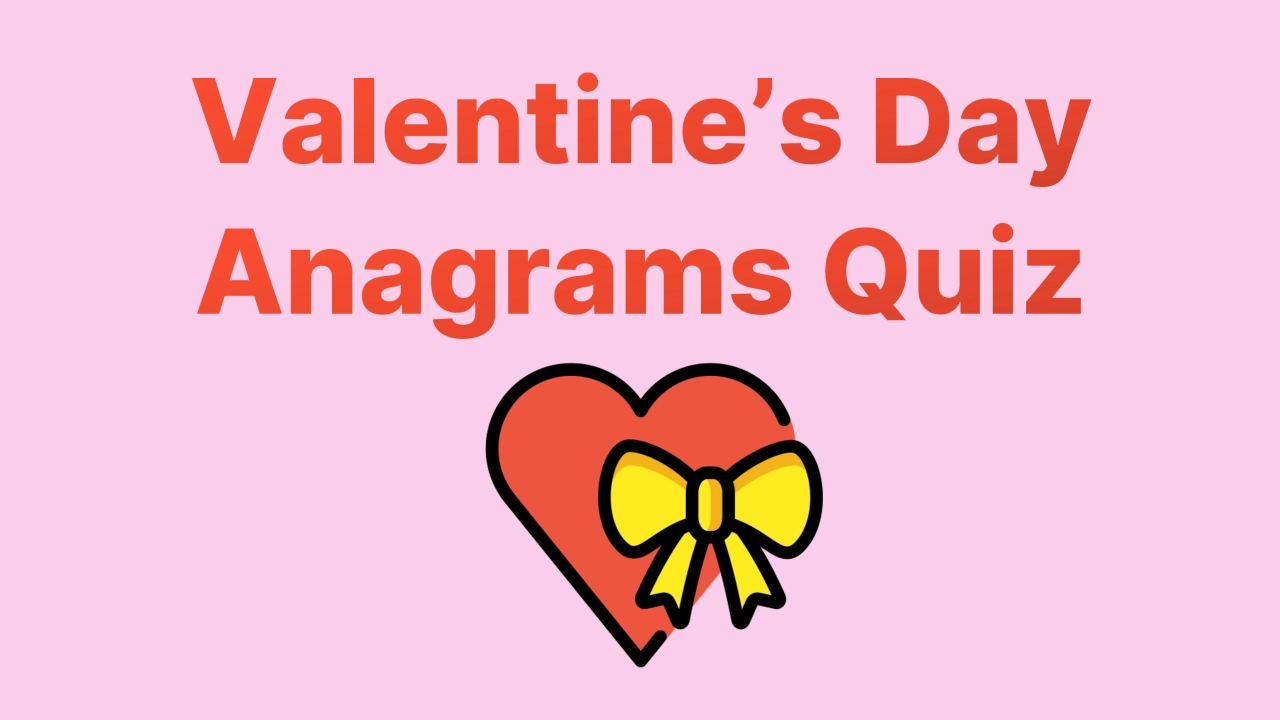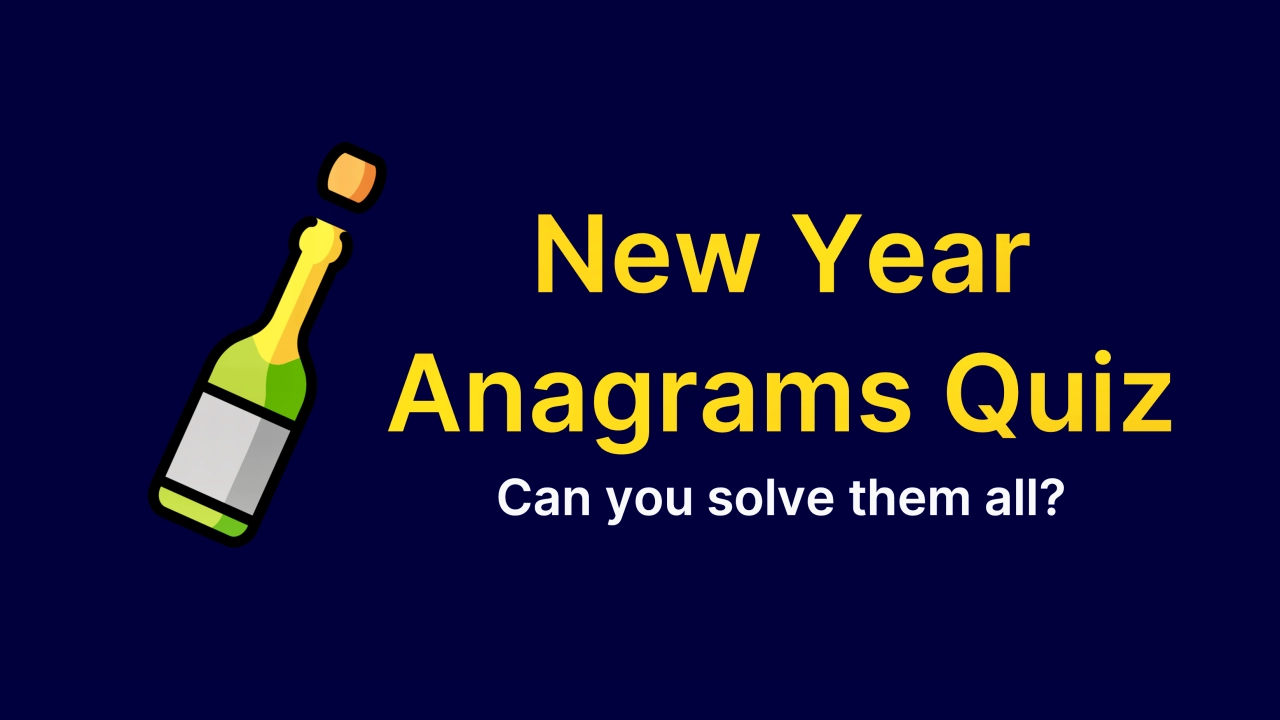As Valentine’s Day approaches, we want to bring some love to our word game fans with a Valentine’s Day word quiz. We selected 7 words related to this infamous day of love and jumbled their letters.
Play along by trying to solve each scrambled-up word. Once you believe you’ve got the answer, click the word or dropdown icon to reveal the correct word.
Valentine’s Day Quiz
1. VOLE
Answer: Love
Starting off easy - the first answer is love. Love is defined as a complex emotion characterised by affection and attachment to someone or something.
Love can be anagrammed further into words such as levo, vole, and ovel.
2. CREMONA
Answer: Romance
Romance encompasses the essence of passionate love, intimacy, and excitement. It is expressed through tender gestures, heartfelt words, and thrilling experiences that enrich relationships.
Some interesting shorter anagram words from romance include macron, cornea, moaner, and canoer.
3. WOLFERS
Answer: Flowers
Flowers are fragile yet vibrant blossoms that encompass attractiveness, progress, and fondness. They are often given as gifts, especially around Valentine’s Day, to express love, appreciation, or sympathy.
Flowers carry diverse meanings across cultures and are associated with various emotions and occasions, including romance, celebration, and mourning.
Valid anagrams from flowers include fowlers, wolfers, reflows, and many other shorter words.
4. DRAC
Answer: Card
Gifting a card on Valentine’s Day is a convention. These are usually handwritten or printed cards, often accompanied by illustrations and decorative elements. The sender will fill the card with a message to convey their affection and appreciation towards the receiver.
It has become more common in recent years to gift Valentine’s Day cards to more than just a romantic partner. For example, cards can be given to family members, friends, or anyone dear to illustrate one’s appreciation for others.
From the word “card,” the words drac, cad, arc, car, ard, and rad can be created.
5. PUDIC
Answer: Cupid
Cupid is a familiar figure on Valentine’s Day, often depicted as a winged, cherubic child armed with a bow and arrow. In mythology, Cupid is the Roman god of love, desire, and attraction, whose arrows have the power to inspire romantic feelings in those they strike.
On Valentine’s Day, Cupid symbolises the playful and sometimes unpredictable nature of love, serving as a whimsical icon associated with matchmaking and affectionate gestures.
Anagrammed words of “cupid” include pudic, duci, pic, cup, dip, pud, and cid to name a few examples.
6. TEAD
Answer: Date
A Valentine’s Day tradition is to take a partner on a date. These are typically planned romantic outings or activities such as a meal or a trip to the movies. It’s the perfect opportunity to bond with someone and create cherished memories together in a special and meaningful way.
Words stemming from the word “date” include tead, taed, ted, tea, eat, tad, and ate.
7. SKIS
Answer: Kiss
Valentine’s Day is a special occasion for lovers to express their affection towards each other. A kiss is a tender and intimate gesture that represents closeness, passion, and the expression of deep emotions.
Finally, some anagrammed words for kiss include skis, ski, kis, sik, sis, and si.
Valentine’s Day Trivia
Congratulations, you’ve reached the end of the quiz! Hopefully, you were able to solve most of our anagram words.
To finish off we’ve researched some quick facts about Valentine’s Day you might be intrigued to know.
- Valentine’s Day is celebrated on 14th February (so don’t forget to buy your cards and flowers if the date is approaching).
- It is suggested it originated from the Roman festival of Lupercalia which celebrated similar themes.
- Valentine’s Day is big business. Valentine’s Day spending is reported to be $221.34 on average per person in the USA. However, in the UK, the average was much lower at £28.45.
Summary
We hope you enjoyed playing along with our Valentine’s Day quiz and quick trivia. We have many similar anagram quizzes here you can explore, including other holidays such as Christmas and New Year.
Did you find this article helpful?



